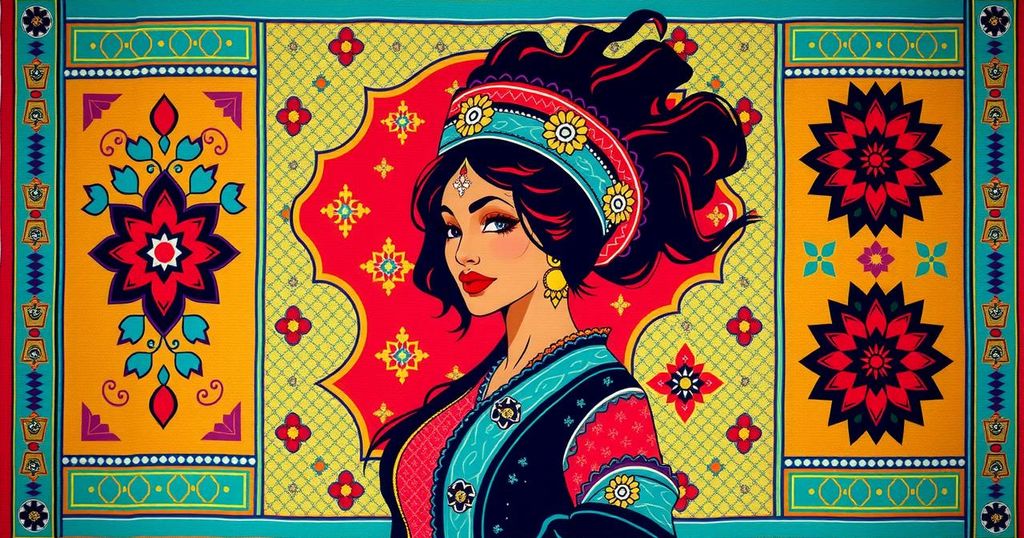This article discusses the current state of female empowerment in Morocco, highlighting the progress made since King Mohammed VI’s 1999 speech regarding women’s roles in society. Despite advancements in legal frameworks and political representation, challenges such as economic disparities and cultural barriers remain prevalent. Women’s participation in political and public life is crucial for their empowerment and requires collective societal efforts to overcome existing obstacles and foster equality.
In a speech delivered on August 20, 1999, King Mohammed VI posed a significant question regarding the progress of Moroccan society and the necessity of addressing women’s interests. This question highlights the commitment to advancing women’s rights and the ongoing injustices they experience due to neglect. It sets the stage for an examination of women’s contributions to various sectors in Morocco today, particularly in light of the gender disparity still prevalent.
As of 2022, Morocco ranked 136th out of 146 countries on the Global Gender Gap Index. This disappointing status stems from inadequate political support for women’s issues, widespread inequalities, and the economic challenges that impede women’s empowerment, coupled with prevalent violence against women. These systemic issues hinder the equal participation of women in society and the economy.
A recent study by the Moroccan Organization for Family Justice in 2023 indicated that 86.32% of women have never pursued political office, and only 8.49% are affiliated with political parties. In the 2021 elections, women constituted 24% of parliamentary deputies and 38.5% of regional council members, despite women casting 54% of the total votes, which often did not favor female candidates, thereby marginalizing their political representation.
Moroccan society has begun acknowledging the necessity of women’s political empowerment, illustrated by advancements in legal frameworks aimed at gender equality. Although constitutional guarantees align with international human rights declarations, women’s political representation remains below global averages, and the discrepancy between theoretical commitments and actual practices is stark.
Challenges persist as many women view politics as an intimidating field, lacking confidence to participate. There are barriers such as electoral list positioning, economic constraints, and societal norms that discourage women’s engagement in politics. Furthermore, negative media portrayals and exclusionary practices among women themselves contribute to this issue.
The dynamic within families also affects women’s political involvement. Strengthening women’s rights within the family positively influences their public participation, emphasizing the urgent need for reform in the Family Code. The absence of women in high-ranking political positions, such as the recent election for the President of the House of Counsellors, starkly highlights the lack of adherence to laws promoting gender equality.
To improve the situation, a collective societal effort is essential to foster a culture of democracy and equality. Initiatives are needed to educate young women about political involvement and empower them to take on governance roles. Women’s participation is vital for shaping public policy and contributing to national development.
In economic terms, the first female ministers were appointed in 1997, but current representation remains unequal. Women occupy only 19.86% of ministerial roles and face significant wage gaps and unemployment disparities compared to men. A considerable proportion of unemployed women cite domestic responsibilities as a primary reason for their lack of employment.
In conclusion, while progress in women’s rights is evident, significant challenges persist, necessitating dedicated efforts to enhance their political representation and overall societal participation. The aspiration for equality extends beyond political frameworks; it encompasses women’s roles in society that contribute positively to economic development, as evidenced by research indicating that increased female involvement can lead to higher gross domestic product and lower levels of corruption in governance.
In summary, Morocco has witnessed positive strides in women’s rights, significantly influenced by women’s movements and governmental commitments. Nonetheless, ongoing challenges, especially in politics and decision-making roles, must be addressed to ensure that women attain the recognition and opportunities they deserve. Enhancing women’s participation in all societal facets is crucial for overall development and economic prosperity, as it can enrich governance and public administration. The pursuit of gender equality is imperative not only for the elevation of women but also for the comprehensive advancement of Moroccan society as a whole.
Original Source: www.moroccoworldnews.com






